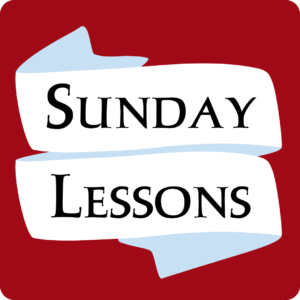Worship Guide for April 17, 2025
Maundy Thursday
Like TV Guide, but from God! Find the text of the Prayers of the People and Sermon below. Use the buttons provided to find other worship materials.
To see the Worship Guide for other weeks, click here.
To see the Book of Common Prayer online, click here.
Prayers
Weekly Prayer List Recording:
Maundy Thursday
April 17, 2025
Celebrant adds a concluding prayer.
Sermon Recording:
Sermon title
K Casenhiser
Maundy Thursday
Year C
“When [Judas] had gone out, Jesus said, “Now is the Son of Man glorified, and God is glorified in him. If God is glorified in him, God will also glorify him in himself, and glorify him at once. Little children, yet a little while I am with you. You will seek me, and just as I said to the Jews, so now I also say to you, ‘Where I am going you cannot come.’ A new commandment I give to you, that you love one another: just as I have loved you, you also are to love one another. By this all people will know that you are my disciples, if you have love for one another.”
—John 13:1–17, 31b–35
We begin Maundy Thursday at the wash basin. Before we share wine and bread commemorating the Last Supper during the time of Passover, we gather our feet. We become present to the profound intimacy of Jesus drawing near. This day marks Jesus’s last supper with his friends, mere hours before his betrayal and the anguish of the Passion. The Middle English word maundy comes from the Old French mandé, of the Latin mandatum, which means “commandment.” In this moment, Jesus intentionally performs an unexpected act: he gives his disciples a radical new commandment – to love one another by washing each other’s feet.
This imagery should sound familiar to us. Recall just last week when we witnessed Mary Magdalene kneeling to wash Jesus’s feet with her tears and dry them with her hair, a powerful expression of devotion that shocked the disciples. That earlier scene with Mary anticipates this moment between Jesus and his disciples. In her humble act of washing Jesus’s feet, she demonstrated a love that extended even to the point of death. Even the fragrant nard she poured out carried a prophetic significance, preparing him for burial. And what did Jesus say to her in Luke’s Gospel? He affirmed, “You showed great love.”
Now, Jesus calls us to embody that same great love by both allowing our feet to be washed and by washing the feet of others. Tonight, we encounter Jesus seeking to see and bless us, so that we, in turn, might see and bless others, particularly in the trying journey to Golgatha that lies ahead. In this ritual act, Jesus washes our feet, anointing us for a ministry of Love empowered by the Spirit that follows him. Through this action, Jesus prepares us to walk with him towards the cross and to live out the life he modeled, even when his physical presence among us shifts. The foot washing initiates a new form of presence, leaving the disciples bewildered. Jesus comforts their confusion and anxiety, saying, “You do not know what I’m doing, but someday you will understand.”
Understand what?
Clearly, foot washing holds significance for Jesus because he commands his followers to practice it. Why? It matters because it distinguishes us as disciples of Christ. He instructs us – his followers – to participate in this act of humility and vulnerability, so that all may recognize our connection with God and God’s presence with us.
On the eve of his suffering and death, Jesus washed the feet of his friends to assure them of his enduring love, a love that would persist to the very end. The grace of the Gospel includes us among Jesus’s friends, and like the disciples, we are called to uphold this commandment: to love one another by bending low and washing each other’s feet.
It’s vulnerable to uncover our feet. We often hesitate to show them to each other, as they can reveal aspects of how we care for ourselves. My own feet, for instance, bear calluses right now because I haven’t tended to them in months. I might feel reluctant to show you my calloused feet, fearing it might betray my weariness and need for rest. But the truth is, I need rest, and Jesus comes near to us as God incarnate so that our flesh can be known to God and to each other. Fleshy vulnerability can feel daunting, yet Jesus understood then, just as Christ understands now, the value of witnessing and caring for the parts of one another we most resist uncovering. Feet are a metaphor, yes, but they are also a physical marker of a place we hold both strength and shame. God desires to be visible to us at this site of strength and shame, the feet, to remind us that Love asks us to risk a degree of exposure to connect with each other.
Therefore, I invite you to bring your feet to the basin, whatever their condition. May we recognize the incarnate love of Christ, who desires to be known to us through these tangible, tender acts, as we humbly wash each other in the water tonight. As we offer this part of ourselves, may we grow in courage and the boldness of holiness to, like Peter, learn to exclaim, “Not only my feet, Lord, but my hands and my head also!” Amen.





